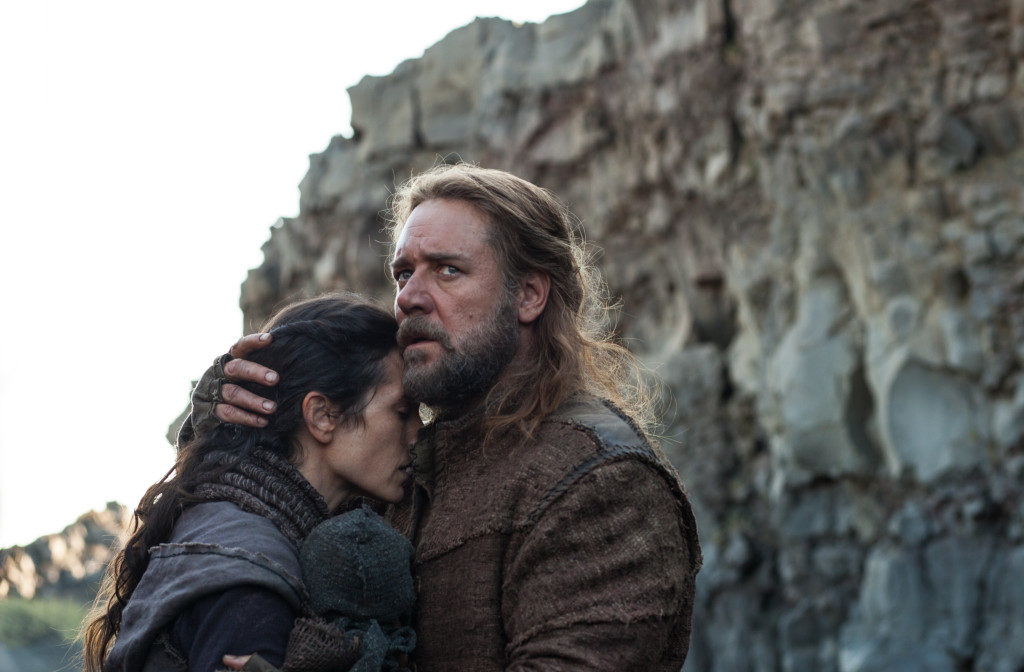To see or not to see?
Starring Russell Crowe, a blockbuster version of Noah’s epic story splashes into cinemas this month. Director Darren Aronofsky (Black Swan, The Wrestler) has openly declared his $125m+ Noah is not a biblically faithful adaptation.
So, then, if biblical accuracy is something that matters to us, what do we do about Noah?
Maybe we can get behind Noah, as a pop-culture way of preaching about God’s relationship with us and this planet. Because, no matter how Noah represents Genesis 6‑9, the hearts of viewers will certainly be stirred by whatever hint of God’s truth is present. Right?
Or should we run a mile from Noah? Is it an affront to the One who brought The Flood? Should those who love and honour God have nothing to do with Noah?
So, to see or not to see? That’s the question. Or is it? Are celebrate or boycott the only choices we have regarding artistic interpretations of what God’s Word reveals?
Aronofsky first unveiled his Noah as a comic-book, which he co-wrote. He has described Noah as ‘the first environmentalist’; a divinely driven man who battles human scepticism and opposition while preparing for global annihilation. Six-winged angels and tribal warfare are part of Aronofsky’s vision of ancient survival. Noah appears to be a disaster movie like 2012, but with exploration of existential issues.
Given Noah’s intention is screen entertainment not religious education, the extremes of totally rejecting or endorsing it are too simplistic. Shouldn’t we productively interact with Aronofsky’s fictional account, by contrasting the actual account of Noah and The Flood? Because Noah is a freebie. Without having to do anything, a golden opportunity for discussing things of eternal importance has arrived. In an arena most are comfortable engaging with: movies.
Almost one decade ago, The Passion of the Christ ignited an unexpected blaze of Jesus focus around the world. Despite graphic violence, questionable elements and lack of emphasis upon Jesus’ resurrection, Mel Gibson’s film became a phenomenon. A valuable consequence of its popularity was how, suddenly, it was okay to chat about who Jesus was and what he did. People who normally wouldn’t have a bar of God stuff, wanted to discuss.
If you disagreed with Gibson’s portrait of the sacrificial Messiah, the opportunity was there to share gospel truth. That was a much better option than boycotting The Passion, or silently hoping audiences would somehow see The Way, The Truth and The Life within it.
Noah might not replicate The Passion phenomenon, but it should open the floodgates of meaningful conversation. For example, how will Aronofsky represent punishment and forgiveness in Noah? ‘Man corrupted this world…so we must be destroyed,’ says Noah’s father Methuselah (Anthony Hopkins). Noah himself confirms on-screen that the Creator of Heaven and Earth intends to destroy the world. But will this global punishment be offset by any forgiveness, in Aronofsky’s Noah?
With Noah centred on its mortal hero, we can expect human efforts on-screen will drown out the Bible’s report of The Flood. Such emphasis will rob audiences of understanding how God’s inestimable grace and forgiveness are powerfully revealed through these apocalyptic events. Without relating to God’s pattern of undeserved salvation, viewers of Noah will miss the purpose of why The Flood came.
Will we help them clearly see the true wash-up?
Ben McEachen













